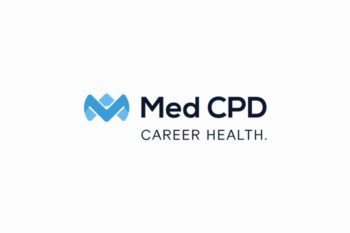“Lean” Enters Australia’s Party Scene
October 16, 2024
Addictive Cough Medicine on the Rise
Health professionals are increasingly confronted with a troubling dilemma: the rise in misuse of over-the-counter cough medicines, particularly Rikodeine, among young people. Rikodeine contains dihydrocodeine tartrate, an opioid analgesic more potent than codeine. Despite the 2018 up-scheduling of codeine to a prescription-only medicine due to its limited efficacy and high risk of harm, dihydrocodeine remained unaffected and readily available as a Schedule 3 medication. This accessibility has led to a surge in recreational use, with teenagers mixing Rikodeine with lemonade to create a concoction known as “lean,” posing significant risks of addiction, overdose, and even death.
This situation places health professionals in a challenging position. On one hand, they must address legitimate medical needs for cough suppression; on the other, they grapple with the potential for misuse and the trust placed in the public to use these medications responsibly. The leniency in over-the-counter availability and a lack of stringent controls have exacerbated the issue, highlighting the need for a critical reassessment of how such potent medications are regulated. Balancing the imperative to provide effective care while mitigating the risk of harm requires a collaborative effort among GPs, pharmacists, and regulatory bodies to ensure both patient safety and public health.
General practitioners are increasingly observing the real-world impact of this issue in their clinics. For instance, Dr. Andrew Leech, a GP from Perth has reported to the RACGP a noticeable surge in teenagers misusing Rikodeine since the onset of the COVID-19 pandemic. Some of his young patients admit to visiting multiple pharmacies to purchase large quantities of the cough syrup, which they then mix with lemonade to create “lean” for recreational use at parties. This behaviour not only underscores the ease of access to dihydrocodeine but also highlights a significant gap in public awareness regarding its potential for addiction and severe health consequences.
Clinical Reports Surge
The real-world consequences of Rikodeine misuse are becoming increasingly evident in clinical settings. For instance, it was reported by Bradlow et al. in the Medical Journal of Australia in 2023 through two Clinical Record summaries, exposing the management of opiate dependence related to dihydrocodeine–sorbitol misuse. A 23-year-old man with a history of depression and anxiety sought treatment at a Melbourne addiction outpatient service for benzodiazepine and opioid use, consuming non-prescribed opioids like methadone, tramadol, and oxycodone daily, unable to quantify his intake due to varying amounts. During consultations, he was observed drinking a purple liquid from a water bottle, which he initially claimed was “vitamin water.” It was later identified as a mixture of Rikodeine and Sprite, commonly known as “lean.” He had been using dihydrocodeine intermittently for seven years, often to enhance the effects of other opioids. After being inducted onto long-acting buprenorphine injections and a diazepam taper, he ceased non-prescribed opioid use, highlighting the potential for recovery with appropriate intervention.
Similarly, a 22-year-old man with autism spectrum disorder, ADHD, generalised anxiety disorder, and PTSD presented to the same service for benzodiazepine and opioid misuse. Over two years, he had been consuming approximately 600 mL of dihydrocodeine daily, initially using it as a cough suppressant before recognising its euphoric effects. He consumed the syrup unmixed and rapidly to mask its sweetness, and his use escalated following a traumatic assault. He combined Rikodeine with benzodiazepines and promethazine to amplify its effects and used loperamide to prevent withdrawal symptoms like diarrhoea. After this assessment and initiating treatment with sublingual buprenorphine, he achieved sustained abstinence from opioids within weeks.
These cases underscore the significant risks associated with the over-the-counter availability of potent opioid-containing cough syrups like Rikodeine. They illustrate how individuals with underlying mental health conditions may misuse these medications, leading to complex substance use disorders that require comprehensive medical and psychosocial interventions. The ease of access and lack of awareness about the potential for addiction highlight the urgent need for health professionals to advocate for stricter regulations and to provide targeted education on the dangers of misusing such medications.
Primary Health Care a Key Driver of Change
Given the rising concerns about the misuse of dihydrocodeine-containing cough syrups like Rikodeine, it’s imperative for the healthcare community to consider proactive measures. One immediate step could be re-evaluating the over-the-counter availability of dihydrocodeine. Since the rescheduling of codeine to a prescription-only medicine in 2018, dihydrocodeine remains the sole over-the-counter opioid in Australia. This accessibility may contribute to its misuse, especially among young people influenced by cultural trends that glamorise substances like “lean.” Should we advocate for reclassifying dihydrocodeine as a prescription-only medication to mitigate its potential for abuse?
Enhancing awareness among health professionals is equally important. Dihydrocodeine misuse often goes undetected in clinical settings due to a lack of familiarity and because it doesn’t appear on standard urine drug screenings. The first patient case illustrates how even clinicians might overlook signs of misuse without adequate knowledge, as the patient’s consumption of Rikodeine during appointments was initially unnoticed. Should medical education and training include specific information on identifying and addressing dihydrocodeine misuse to prevent it from slipping under the radar?
Data collection and surveillance are also crucial in addressing this issue. While earlier studies up to 2019 did not indicate a significant increase in dihydrocodeine misuse following the rescheduling of codeine, there’s a noticeable gap in recent data. Without current statistics, it’s challenging to gauge the true extent of the problem or to implement effective interventions.
Broadly speaking, public education campaigns could play a vital role in curbing misuse by raising awareness about the risks associated with dihydrocodeine-containing cough syrups. Collaborations between healthcare providers, pharmacists, state healthcare services and community organisations might help disseminate information effectively. Considering that “lean” and Rikodeine are referenced in popular culture and music, how can we counteract these influences and educate young people about the potential dangers? Engaging with communities and leveraging social media could be key strategies in changing perceptions and promoting safer behaviours.
Reducing the Risks Long Term
In light of these emerging challenges, it is evident that the misuse of dihydrocodeine-containing cough syrups is a multifaceted problem that cannot be ignored. Health professionals are at a crossroads, needing to balance the legitimate medical use of these medications against their potential for abuse. The ease of access, cultural influences, and lack of awareness contribute to a growing public health concern that disproportionately affects young people.
This situation prompts a critical question for the medical community: Should we focus our efforts on monitoring and restricting the use and access to cough syrups, or should we address the broader issue of substance abuse among youth? Perhaps the answer lies not in choosing one over the other but in adopting a comprehensive approach that tackles both fronts simultaneously.
Monitoring and potentially reclassifying these medications could reduce their availability for misuse, but without addressing the underlying factors that lead young people to substance abuse, such measures may only offer a partial solution. It is important to develop strategies that include education, mental health support, and community engagement to address the root causes of this behaviour. By doing so, we can work towards not only preventing the misuse of specific substances like Rikodeine but also promoting overall well-being and resilience among our youth.
Concerns over growing misuse of Rikodeine Cough Medicine. NewsGP. https://www1.racgp.org.au/newsgp/clinical/concerns-over-growing-misuse-of-rikodeine-cough-me
Bradlow, R. C., Hicks, B., Mu, T., Pham, D., Sharkey, M., Plumley, N., Lubman, D. I., & Arunogiri, S. (2023, September 4). Management of opiate dependence related to dihydrocodeine–sorbitol misuse. The Medical Journal of Australia. https://www.mja.com.au/journal/2023/219/5/management-opiate-dependence-related-dihydrocodeine-sorbitol-misuse












